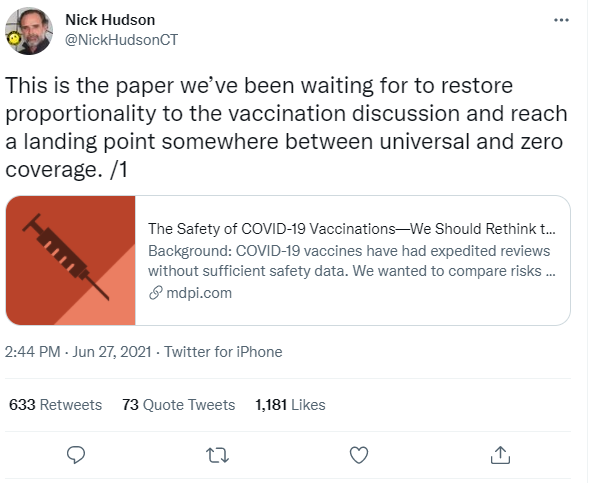
BIG NEWS
New paper out in BMJ Global Health with a brilliant team of researchers on the health impacts of lockdowns
Long story short - lockdowns aren't ideal, but COVID-19 outbreaks are probably much worse 1/n
gh.bmj.com/content/6/8/e0…
New paper out in BMJ Global Health with a brilliant team of researchers on the health impacts of lockdowns
Long story short - lockdowns aren't ideal, but COVID-19 outbreaks are probably much worse 1/n
gh.bmj.com/content/6/8/e0…
2/n What did we do in this paper?
It's a narrative review, so basically represents our knowledge and opinions about the topic, using all of the data that we could find ourselves
It's a narrative review, so basically represents our knowledge and opinions about the topic, using all of the data that we could find ourselves

3/n That means that this isn't the definitive word on lockdowns, or interventions like them
Having said that, we do think that there are a few points that are extremely clear from the evidence to date
Having said that, we do think that there are a few points that are extremely clear from the evidence to date
4/n Firstly - lockdowns cannot possibly cause massive increases to short-term deaths. We used the World Mortality Dataset to look at this, thanks again @ArielKarlinsky and @hippopedoid
5/n Places WITH lockdowns but WITHOUT COVID-19 epidemics did not see excess deaths. There are numerous examples of this, and it largely invalidates the idea that lockdowns in and of themselves cause fatalities 

6/n Importantly, this DOES NOT MEAN that lockdowns necessarily prevented deaths, as comparisons such as the UK vs Sweden show, but that it is not consistent with the evidence to claim that lockdowns have large impacts on short-term mortality 

7/n After that, we get into the REALLY complex stuff. We looked at:
1. Disruptions to health services
2. Mental health/suicide
3. Global health programmes
1. Disruptions to health services
2. Mental health/suicide
3. Global health programmes
8/n To cut a long story short, the evidence for all of these is mixed. There's some data showing impact of government interventions. There's also data showing that large numbers of COVID-19 cases are bad as well
9/n Mental health in particular is a tricky subject. Lockdowns certainly have not been associated with increases in suicide, but there have been consistent worries about mental health
10/n That being said, there's also evidence that people dying from COVID-19 in large numbers is not, uh, ideal for mental health, and disentangling those two impacts is extraordinarily hard 

11/n What does this all mean?
Well, it takes us back to the start of the thread
Lockdowns = bad
COVID-19 = probably worse
Well, it takes us back to the start of the thread
Lockdowns = bad
COVID-19 = probably worse
12/n If government interventions against COVID-19 work, then it's likely that they are beneficial on the whole. There may be lockdowns that have been both good and bad, and it will take us a long time to solve that riddle
13/n The bottom line is pretty simple really - all of this is far more complex than a simple yes/no. Rather than the tedious rhetoric of "lockdowns bad", we should be asking WHICH lockdowns were good/bad, and WHY
14/n All that being said, based on current best evidence we do not think it is possible to say definitively what harms lockdowns do have to health, but we can say that it is likely that these harms are not worse than the disease itself
15/n Thanks to the amazing team who've worked on this @DrSamirBhatt @LeaMerone @GYamey @flaxter and all the rest of the authors!
• • •
Missing some Tweet in this thread? You can try to
force a refresh








